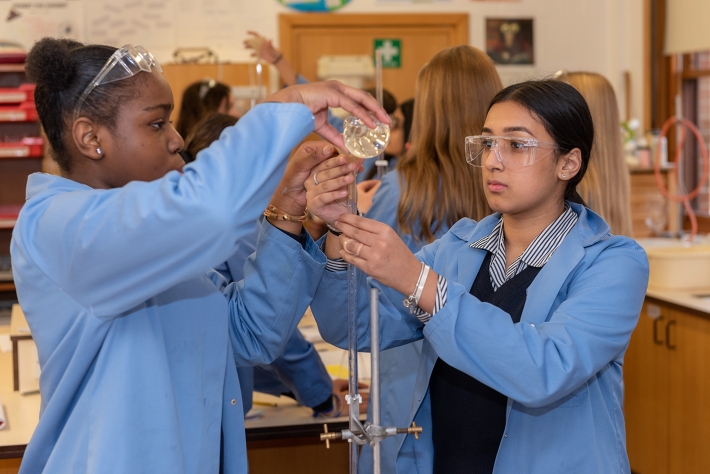By Caroline Petryszak
Head Teacher
Northampton High School
IN 2019, six of The Times’ top 10 independent schools were named as single-sex girls’ schools, yet many parents remain curious – and cautious – about the relevance of girls-only education in the 21st century.
Dr Kevin Stannard, Director of Innovation and Learning at the Girls’ Day School Trust (GDST) considers this in his booklet ‘Why (and how) girls thrive in girls-only schools’ (GDST, 2019). In this publication, he draws on research in saying that ‘there is strong evidence that girls-only education leads to higher academic achievement, greater diversity of subject choice, stronger self-confidence and resilience, and enhanced career progression’. His executive summary comments on a number of behaviours exhibited by girls in single-sex schools, stating that these girls:
* are less likely to conform to a priori gender stereotypes,
* are less constrained in their choice of subjects,
* show a greater propensity to take risks and innovate,
* perform better in examinations,
* have more opportunities to show leadership, and
* are more successful in the job market.
These points are reiterated in the Girls’ Schools Association (GSA) online article ‘The Benefits of Girls’ Schools’ (GSA, 2020), which states that (in girls-only schools) there is ‘no such thing as a girl’s subject or a boy’s subject and girls are free to follow their inclinations with little of the pressure they might otherwise feel’. In these schools, they say, girls are ’75 per cent more likely to take Maths A-level, 70 per cent more likely to take Chemistry and two and a half times as likely to take Physics’.
The positive effects of girls-only education do not follow automatically from the separation of the sexes and, as Dr Stannard rightly cautions, ‘single-sex education, to be successful, must be more than an organisational device – it needs to be underpinned by a set of principles, and articulated in a set of practices, whereby girls are nurtured, challenged and empowered’.
This is certainly the case at Northampton High School where, in 2019, Sixth Form students were 248 per cent more likely to take Maths A-level, 214 per cent more likely to take Chemistry and over five times as likely to take Physics when compared to national statistics for girls, yet they went on to secure university places in a huge range of disciplines including Film, Fashion, History, Music and Literature.
In their Educational Quality Inspection (EQI) of 2019, the Independent Schools Inspectorate (ISI) awarded the school the highest possible grading of ‘excellent’ for both of the key outcomes reviewed: achievement and personal development. Moreover, communication and collaborative working, which are both key skills for the 21st Century, were deemed ‘a strength of the school’, as were listening skills and respect and tolerance of each other.
Northampton High School places great emphasis on the knowledge and nurture of the individual, living each day by the ‘Girls First’ philosophy of the GDST. Here, girls have the freedom to be themselves in a safe but forward-thinking environment, to take advantage of the excellent opportunities on offer and to be the very best that they can be.
Comments including ‘Pupils throughout the school demonstrate a high level of self-understanding, self-confidence, self-discipline and resilience’; ‘Pupils achieve high levels of success in a wide range of extra-curricular activities’ and ‘Pupils of all ages show extremely positive attitudes to learning’ (ISI, 2019)
Find out more about Northampton High School on 01604 765765 or email Amanda Wilmot at


